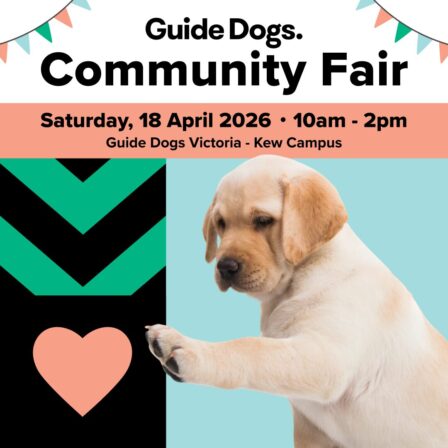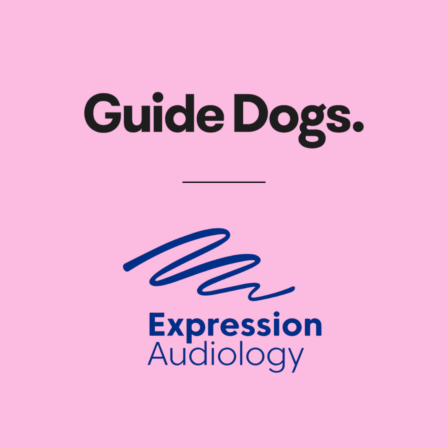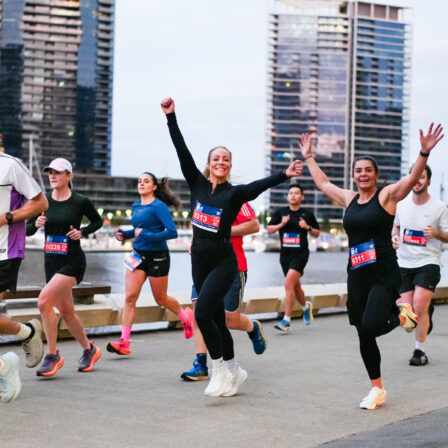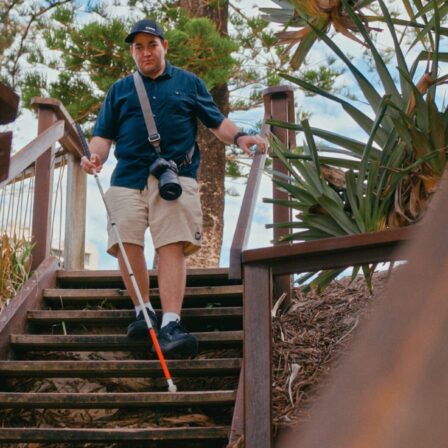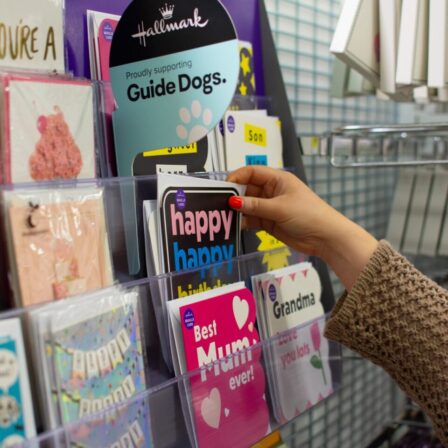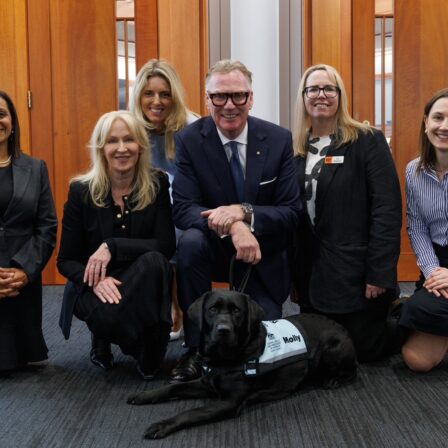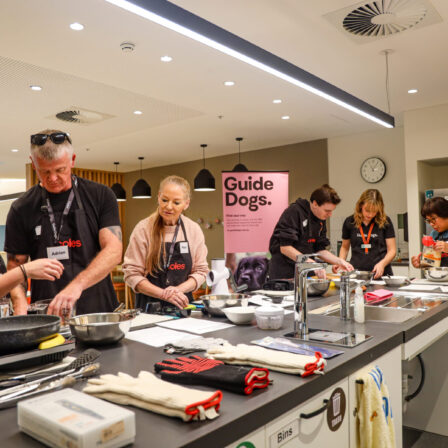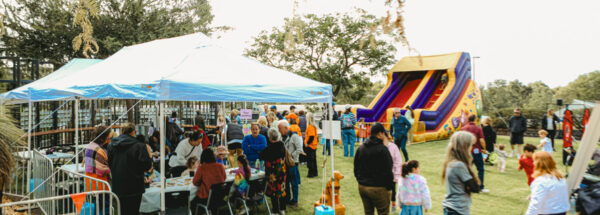News
Australians rank their knowledge of Guide Dog Handlers at a 5 out of 10
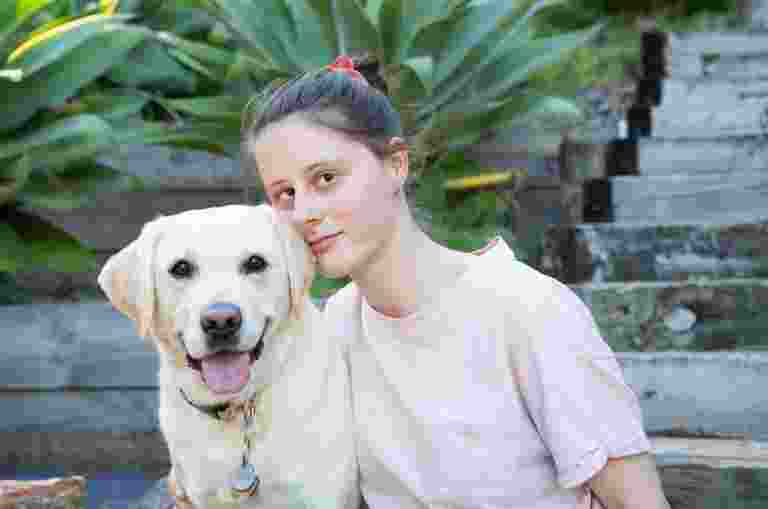
Survey shows a lack of community awareness limits access and inclusion for Australians with low vision or blindness who use Guide Dogs.
This International Guide Dog Day (Wednesday April 26), Guide Dogs Australia is encouraging the community to better understand the rights, etiquettes and challenges of Guide Dog Handlers after misunderstandings and gaps in community knowledge were revealed.
When asked to rate their knowledge on a range of issues relating to Handlers and their Guide Dogs from poor (0) to very high (10), a survey of 1,500 everyday Australians averaged out at a 5/10, showing there’s room for improvement.
While 70% of Australians surveyed say they understand the importance of Guide Dog Access Rights, which includes access to all public areas, less than half knew this means a working Guide Dog with its Handler has access to rideshare services and airplanes.
This is concerning given research conducted for International Guide Dog Day last year showed a third of Guide Dogs Handlers have been put in danger because of access refusals, with rideshares reported as the leading cause.
Other community misunderstandings or lack of knowledge that can limit access and inclusion for Guide Dog Handlers include:
- 43% of people surveyed believe it is okay to touch a working Guide Dog in harness when they think the Handler or dog need help. In reality, the best way to assist a Guide Dog Handler is to ask them first if and how they would like assistance (less than half of respondents correctly identified this as the best course of action). You should never touch, feed or otherwise distract a working Guide Dog.
- One third of people did not know to keep their pet dog on a lead, give plenty of space and makes themselves known before approaching or passing a Handler with their Guide Dog. Unleashed dogs or other types of dog distractions can cause Handlers and their Guide Dogs to become disoriented, change their daily habits, and in some cases put them in danger.
- Almost two thirds of people say they have avoided talking to a person with low vision or blindness by addressing their Guide Dog or someone accompanying them instead. Not wanting to intrude and worrying about saying the wrong thing or being insensitive topped the list of barriers for half of the respondents.
Guide Dog Handler Nikki Drake said “The dogs are gorgeous. Don’t get me wrong, but sometimes it’d be nice if people acknowledged that my dog is working and helping me to access my community safely. It’s frustrating when people call out, speak to or try to pat my Guide Dog. It’s just that you’re distracting my aid.
“This is just one example of the ways the community better interact with Guide Dog Handlers like myself so we can be out and about just like everyone else.”
Guide Dogs Australia’s Talk to the Handler campaign aims to improve community knowledge and action by highlighting the issues that affect a Guide Dog Handler’s independence daily.
“We all know and love the iconic Guide Dog. But they exist for a reason, and that is to help people with low vision or blindness to fulfill their individual goals and access their community safely and independently. We want to shine a light on the things Guide Dog Handlers want the community to know – what they need them to know – so they can lead a life of their choosing,” said Guide Dog Mobility Instructor Doug Ritchie.
Knowledge is power, so here’s five top tips for the community this International Guide Dog Day:
- Talk to the Handler – if in doubt always ask a person using a Guide Dog first if they need help, and announce you’re there. Using your voice is always better than using your hands.
- Give them access – Guide Dogs in harness can go absolutely anywhere their Handler can go, it’s a legal right.
- Don’t distract the dog – Guide Dogs are highly trained, but they are dogs at the end of the day so avoiding feeding or distracting them so they can focus on their skilled work.
- Give them space – physical space is very important, so avoiding touching a Handler or a dog, or letting your own dog greet them, so they can work safely together.
- Further your education – access resources, ask someone you know with blindness or low vision about their experience, or see if you can do formal training for work, then pass that knowledge on.
